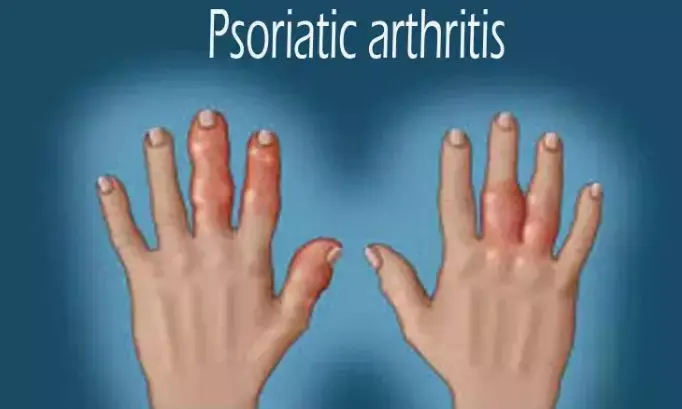- Home
- Medical news & Guidelines
- Anesthesiology
- Cardiology and CTVS
- Critical Care
- Dentistry
- Dermatology
- Diabetes and Endocrinology
- ENT
- Gastroenterology
- Medicine
- Nephrology
- Neurology
- Obstretics-Gynaecology
- Oncology
- Ophthalmology
- Orthopaedics
- Pediatrics-Neonatology
- Psychiatry
- Pulmonology
- Radiology
- Surgery
- Urology
- Laboratory Medicine
- Diet
- Nursing
- Paramedical
- Physiotherapy
- Health news
- Fact Check
- Bone Health Fact Check
- Brain Health Fact Check
- Cancer Related Fact Check
- Child Care Fact Check
- Dental and oral health fact check
- Diabetes and metabolic health fact check
- Diet and Nutrition Fact Check
- Eye and ENT Care Fact Check
- Fitness fact check
- Gut health fact check
- Heart health fact check
- Kidney health fact check
- Medical education fact check
- Men's health fact check
- Respiratory fact check
- Skin and hair care fact check
- Vaccine and Immunization fact check
- Women's health fact check
- AYUSH
- State News
- Andaman and Nicobar Islands
- Andhra Pradesh
- Arunachal Pradesh
- Assam
- Bihar
- Chandigarh
- Chattisgarh
- Dadra and Nagar Haveli
- Daman and Diu
- Delhi
- Goa
- Gujarat
- Haryana
- Himachal Pradesh
- Jammu & Kashmir
- Jharkhand
- Karnataka
- Kerala
- Ladakh
- Lakshadweep
- Madhya Pradesh
- Maharashtra
- Manipur
- Meghalaya
- Mizoram
- Nagaland
- Odisha
- Puducherry
- Punjab
- Rajasthan
- Sikkim
- Tamil Nadu
- Telangana
- Tripura
- Uttar Pradesh
- Uttrakhand
- West Bengal
- Medical Education
- Industry
Guselkumab helps reduce fatigue in Patients of Psoriatic Arthritis; finds study

In a recent advancement a new study has shown that in patients with psoriatic arthritis (PsA) , guselkumab (GUS, an IL-23 inhibitor) can significantly improve the disease related symptoms than placebo. The findings put forth in ACR Convergence 2020, have further highlighted that these improvements were maintained through 1 year of active treatment.
Guselkumab is now the second interleukin (IL)–23 inhibitor to be approved by the Food and Drug Administration for the treatment of adults with active psoriatic arthritis (PsA),
Researchers evaluated the effect of GUS on fatigue in DISCOVER 1 & 2 clinical trials, using the patient reported outcome (PRO) FACIT-Fatigue, which has demonstrated content validity and strong psychometric properties in clinical trials.
As for the study design,DISCOVER 1 & 2 enrolled patients with active PsA, despite non-biologic DMARDS or NSAIDS, who were biologic naïve except ~30% of patients in DISCOVER 1 who had received 1-2 TNFi.
Patients were randomized (1:1:1) in a blinded fashion to subcutaneous GUS 100 mg at w0, w4, then every (q) 8w; GUS 100 mg q4w; or matching PBO. At w24, PBO patients were switched to GUS q4w. Concomitant treatment with select non-biologic DMARDS, oral corticosteroids, and NSAIDs was allowed. The FACIT-Fatigue is a 13-item PRO assessing fatigue and its impact on daily activities and function over the past 7 days, total score ranging from 0 to 52, higher score denoting less fatigue. A change of ≥4 points is considered clinically meaningful.
Data analysis revealed the key facts.
· At baseline in DISCOVER 1 & 2, the mean FACIT-fatigue scores (SD) were 30.4 (10.4) and 29.7 (9.7), respectively, indicating that patients with PsA experienced fatigue worse than the general population. At w24 in the DISCOVER trials, treatment with GUS led to significant improvements in FACIT-Fatigue scores compared with PBO, as early as w16 in DISCOVER 1 and w8 in DISCOVER 2.
· Improvements in fatigue were similar between GUS q4w and q8w doses, and the improvements at w24 were maintained through w52 (Figure 2).
· After a switch to GUS q4w at w24, PBO patients achieved FACIT-Fatigue scores that were comparable to those of GUS patients .
· 54%-63% of GUS patients compared with 35%-46% of PBO patients achieved clinically meaningful improvement (≥4 points) in FACIT-Fatigue at w24 (P≤0.003).
At w52, 61%-70% of both GUS and PBO-to-GUS groups reached this improvement. As evaluated by mediation analysis at w24, GUS had independent positive treatment effects on fatigue (12%-36% in the q8w GUS dosing group and 69%-70% in the q4w GUS group) after adjustment for ACR20 response .
Primary source: ACR Convergence 2020
Dr Satabdi Saha (BDS, MDS) is a practicing pediatric dentist with a keen interest in new medical researches and updates. She has completed her BDS from North Bengal Dental College ,Darjeeling. Then she went on to secure an ALL INDIA NEET PG rank and completed her MDS from the first dental college in the country – Dr R. Ahmed Dental College and Hospital. She is currently attached to The Marwari Relief Society Hospital as a consultant along with private practice of 2 years. She has published scientific papers in national and international journals. Her strong passion of sharing knowledge with the medical fraternity has motivated her to be a part of Medical Dialogues.
Dr Kamal Kant Kohli-MBBS, DTCD- a chest specialist with more than 30 years of practice and a flair for writing clinical articles, Dr Kamal Kant Kohli joined Medical Dialogues as a Chief Editor of Medical News. Besides writing articles, as an editor, he proofreads and verifies all the medical content published on Medical Dialogues including those coming from journals, studies,medical conferences,guidelines etc. Email: drkohli@medicaldialogues.in. Contact no. 011-43720751


